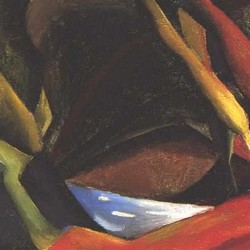- Details

Some time ago, we listened to a Lied that Franz Schubert composed upon a poem by Friedrich von Hardenberg, Novalis, a poem that starts with the verse "Ich sehe dich in tausend Bildern".Back then, I told you that it was not easy to establish if the Lied, known as Geistliches Lied or Maria, was a sacred or a secular song.
- Details

This week's poem begins with the verse “Aus der Heimat hinten den Blitzen rot” [From the direction of home, behind the red flashes of lightning], by Joseph von Eichendorff. We're familiar with it thanks to a Lied by Robert Schumann, In der Fremde, which opens his Liederkreis, Op. 39. It is a purely romantic poem, like the whole cycle: the feeling of belonging nowhere [...]
- Details

We're already in the middle of summer, which means it's time to take a break or, at the very least, slow down. Regular readers know that Liederabend doesn't make holidays, but I try to make lighter posts during the summer months. As usual, August will be devoted to the Schubert, and I have been considering what I could do in July.
- Details

Andante. Andantino. Adagio. Andante molto moderato. These are usual tempo indications in Gabriel Fauré's mélodies, which are usually slow, quiet, intimate songs. Therefore, it is striking to find in a recital a song by Fauré indicated as allegro energico.
- Details

Some of you may remember the series I wrote about Wilhelm Masters songs, which began in October 2013 and ended eighteen posts later in June 2016. We all often heard in recitals the songs of Mignon and the harpist, included in Johann Wolfgang Goethe's Wilhelm Meister's Apprenticeship, so the aim was to put them into context. Actually, there are fourteen songs in [...]












